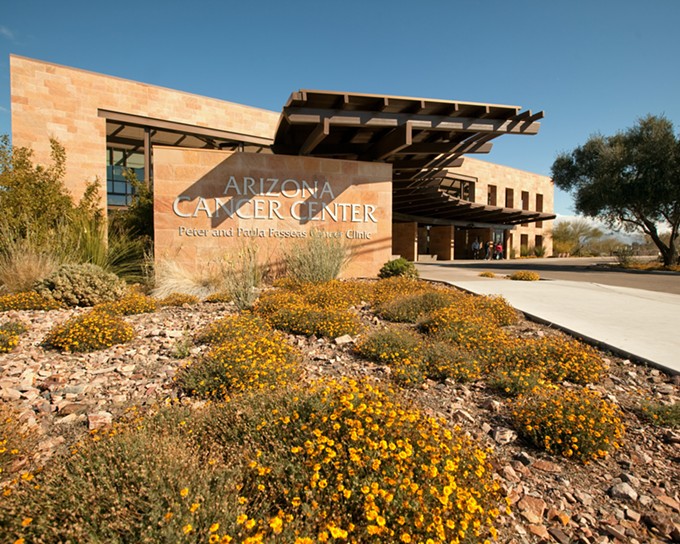This week, the University of Arizona will remain in phase one of their staged plan for reopening but anticipates moving into phase two of the plan next week, UA President Robert C. Robbins said in a news conference Monday, Oct. 5.
Phase one allows students to attend essential in-person classes only, but the university plans to add in-person instruction for classes of 30 or fewer students the week of Oct. 12.
According to Robbins, about 2,500 additional students will have the option to attend in-person classes, and the new opportunity only applies to those who signed up for in-person classes during the registration period at the beginning of the school year.
Phase 2 was originally set to begin on Aug. 31, but the high numbers of positive coronavirus cases delayed the step toward having more in-person classes on campus. Since Aug. 24, about 6,200 UA students have attended essential in-person courses.
Robbins said the university has no recorded cases of COVID-19 transmission within a classroom or laboratory setting, but they will only move into phase two if public health metrics continue a positive trend.
"This strategic reintroduction of more students to a university campus is a part of layered mitigation," Pima County Health Department Director Dr. Theresa Cullen said at the press conference. "If the numbers go up, we will not support more introduction of students on campus. Our hope is in this next 7-10 days, we will see those numbers stabilize."
Over the 10-day window from Sept. 23-Oct. 2, the university reported 181 positive coronavirus tests for a positivity rate of 2.3 percent. This is an improvement from the previous 10-day period, which saw a COVID-19 positivity rate of 7.9 percent.
As of Friday evening, the university had 68 dorm students in isolation housing and 450 beds available.
Robbins partly credits the decrease in cases to the university's voluntary 14-day self-quarantine program in which students were asked to stay home and avoid unnecessary trips, which ended Sept. 29. However, he warns the quarantine period may be restored if the number of coronavirus cases rises.
"If noncompliance remains a significant issue or if we see an increase in cases, it may need to be reinstated and we're not going to be able to progress to this stage two that we're thinking about doing next week," Robbins said.
Over the past week, the university's CART team, which looks for incidents of noncompliance to COVID-19 precautions, responded to 14 incidents, including a party with over 100 attendees. This team issued three university-related red tags, five citations and five code-of-conduct referrals.
Robbins said he was also aware of a party with 50 people at an apartment on Park Avenue.
"This just is irresponsible and reckless, and we've got to stop this," Robbins said. "This is where the spread of this virus is occurring."
Although the number of citations issued is down from last week, Robbins said "we're still not where we need to be."
"It's important to note that everything we do has an impact far beyond the individual. We are in this as a collective," Cullen said.
On Sept. 25, the university began randomly testing dorm students. Beginning Oct. 5, randomly selected employees will undergo coronavirus testing and starting Oct. 12, the university will randomly test off-campus students.
According to Robbins, the university has the capacity to administer 10,000 COVID-19 tests a week, and the ultimate goal is to "test everybody every day."
"We can't be complacent. The numbers are still far too high, we still have too much disease in the community," Reentry Task Force Director Dr. Richard Carmona said. "We're heading in the right direction, now we have to work even harder to make sure we stay there."











